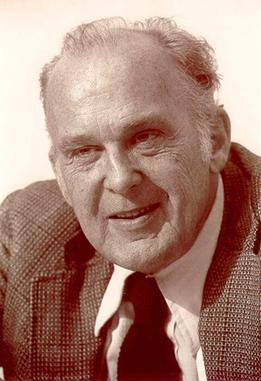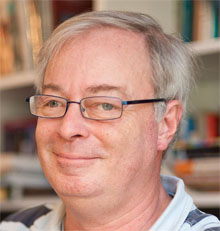
In computer science, evolutionary computation is a family of algorithms for global optimization inspired by biological evolution, and the subfield of artificial intelligence and soft computing studying these algorithms. In technical terms, they are a family of population-based trial and error problem solvers with a metaheuristic or stochastic optimization character.
The philosophy of biology is a subfield of philosophy of science, which deals with epistemological, metaphysical, and ethical issues in the biological and biomedical sciences. Although philosophers of science and philosophers generally have long been interested in biology, philosophy of biology only emerged as an independent field of philosophy in the 1960s and 1970s, associated with the research of David Hull. Philosophers of science then began paying increasing attention to biology, from the rise of Neodarwinism in the 1930s and 1940s to the discovery of the structure of DNA in 1953 to more recent advances in genetic engineering. Other key ideas include the reduction of all life processes to biochemical reactions, and the incorporation of psychology into a broader neuroscience.

Evolutionary epistemology refers to three distinct topics: (1) the biological evolution of cognitive mechanisms in animals and humans, (2) a theory that knowledge itself evolves by natural selection, and (3) the study of the historical discovery of new abstract entities such as abstract number or abstract value that necessarily precede the individual acquisition and usage of such abstractions. As a branch of inquiry in epistemology, evolutionary epistemology lies at the crossroads of philosophy and evolutionary biology.

Rupert Riedl was an Austrian zoologist.

Donald Thomas Campbell was an American social scientist. He is noted for his work in methodology. He coined the term evolutionary epistemology and developed a selectionist theory of human creativity. A Review of General Psychology survey, published in 2002, ranked Campbell as the 33rd most cited psychologist of the 20th century.

Origination of Organismal Form: Beyond the Gene in Developmental and Evolutionary Biology is an anthology published in 2003 edited by Gerd B. Müller and Stuart A. Newman. The book is the outcome of the 4th Altenberg Workshop in Theoretical Biology on "Origins of Organismal Form: Beyond the Gene Paradigm", hosted in 1999 at the Konrad Lorenz Institute for Evolution and Cognition Research. It has been cited over 200 times and has a major influence on extended evolutionary synthesis research.
Elliott R. Sober is Hans Reichenbach Professor and William F. Vilas Research Professor in the Department of Philosophy at University of Wisconsin–Madison. Sober is noted for his work in philosophy of biology and general philosophy of science.
Darwinian literary studies is a branch of literary criticism that studies literature in the context of evolution by means of natural selection, including gene-culture coevolution. It represents an emerging trend of neo-Darwinian thought in intellectual disciplines beyond those traditionally considered as evolutionary biology: evolutionary psychology, evolutionary anthropology, behavioral ecology, evolutionary developmental psychology, cognitive psychology, affective neuroscience, behavioural genetics, evolutionary epistemology, and other such disciplines.

The Konrad Lorenz Institute for Evolution and Cognition Research (KLI) is an international center for advanced studies in the life and sustainability sciences. It is a "Home to Theory that Matters" that supports the articulation, analysis, and integration of theories in biology and the sustainability sciences, exploring their wider scientific, cultural, and social significance. The institute is located in Klosterneuburg, near Vienna, Austria. Until 2013, the institute was located in the family mansion of the Nobel Laureate Konrad Lorenz in Altenberg. Lorenz' work laid the foundation for an evolutionary approach to mind and cognition.
Kim Sterelny is an Australian philosopher and professor of philosophy in the Research School of Social Sciences at Australian National University and Victoria University of Wellington. He is the winner of several international prizes in the philosophy of science, and was previously editor of Biology and Philosophy. He is also a member of the Australian Academy of the Humanities. He is currently the First Vice President of the Division for Logic, Methodology and Philosophy of Science and Technology of the International Union of History and Philosophy of Science and Technology (2020–2023).
Lawrence Shapiro is a professor in the Department of Philosophy at the University of Wisconsin–Madison in the United States. His research focuses in the philosophy of psychology. He also works in both the philosophy of mind, and philosophy of biology.

Gerd B. Müller is an Austrian biologist who is emeritus professor at the University of Vienna where he was the head of the Department of Theoretical Biology in the Center for Organismal Systems Biology. His research interests focus on vertebrate limb development, evolutionary novelties, evo-devo theory, and the Extended Evolutionary Synthesis. He is also concerned with the development of 3D based imaging tools in developmental biology.
The Vienna Series in Theoretical Biology is a book series published by MIT Press and devoted to advances in theoretical biology at large. By promoting the formulation and discussion of new theoretical concepts, the series intends to help fill the gaps in our understanding of some of the major open questions of biology, such as the origin and organization of organismal form, the relationship between development and evolution, and the biological bases of cognition and mind.
The Altenberg Workshops in Theoretical Biology are expert meetings focused on a key issue of biological theory, hosted by the Konrad Lorenz Institute for Evolution and Cognition Research (KLI) since 1996. The workshops are organized by leading experts in their field, who invite a group of international top level scientists as participants for a 3-day working meeting in the Lorenz Mansion at Altenberg near Vienna, Austria. By this procedure the KLI intends to generate new conceptual advances and research initiatives in the biosciences, which, due to their explicit interdisciplinary nature, are attractive to a wide variety of scientists from practically all fields of biology and the neighboring disciplines.
Cognitive biology is an emerging science that regards natural cognition as a biological function. It is based on the theoretical assumption that every organism—whether a single cell or multicellular—is continually engaged in systematic acts of cognition coupled with intentional behaviors, i.e., a sensory-motor coupling. That is to say, if an organism can sense stimuli in its environment and respond accordingly, it is cognitive. Any explanation of how natural cognition may manifest in an organism is constrained by the biological conditions in which its genes survive from one generation to the next. And since by Darwinian theory the species of every organism is evolving from a common root, three further elements of cognitive biology are required: (i) the study of cognition in one species of organism is useful, through contrast and comparison, to the study of another species’ cognitive abilities; (ii) it is useful to proceed from organisms with simpler to those with more complex cognitive systems, and (iii) the greater the number and variety of species studied in this regard, the more we understand the nature of cognition.

Werner Callebaut was a professor at the University of Hasselt, scientific director of the Konrad Lorenz Institute for Evolution and Cognition Research, editor and chief of Biological Theory, and president of The International Society for the History, Philosophy, and Social Studies of Biology.
Cultural evolution is an evolutionary theory of social change. It follows from the definition of culture as "information capable of affecting individuals' behavior that they acquire from other members of their species through teaching, imitation and other forms of social transmission". Cultural evolution is the change of this information over time.
Karola Stotz was a German scholar of philosophy of biology, cognitive science, and philosophy of science. With Paul E. Griffiths, she pioneered the use of experimental philosophy methods in the field of philosophy of science.
Kevin Neville Lala is an English evolutionary biologist who is Professor of Behavioural and Evolutionary Biology at the University of St Andrews in Scotland. Educated at the University of Southampton and University College London, he was a Human Frontier Science Program fellow at the University of California, Berkeley before joining the University of St Andrews in 2002. He is one of the co-founders of niche construction theory and a prominent advocate of the extended evolutionary synthesis. He is a fellow of the Royal Society of Edinburgh and the Society of Biology. He has also received a European Research Council Advanced Grant, a Royal Society Wolfson Research Merit Award, and a John Templeton Foundation grant. He was the president of the European Human Behaviour and Evolution Association from 2007 to 2010 and a former president of the Cultural Evolution Society. Lala is currently an external faculty of the Konrad Lorenz Institute for Evolution and Cognition Research.
Lee Altenberg is an American theoretical biologist. He is on the faculty of the Departments of Information and Computer Sciences and of Mathematics at the University of Hawaii at Mānoa. He is best known for his work that helped establish the evolution of evolvability and modularity in the genotype–phenotype map as areas of investigation in evolutionary biology, for moving theoretical concepts between the fields of evolutionary biology and evolutionary computation, and for his mathematical unification and generalization of modifier gene models for the evolution of biological information transmission, putting under a single mathematical framework the evolution of mutation rates, recombination rates, sexual reproduction rates, and dispersal rates.







